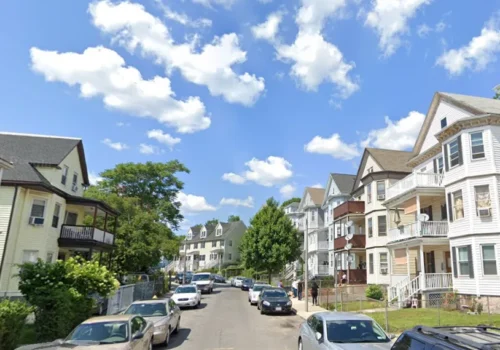Sober living
Opposing Effects of Alcohol on the Immune System PMC

Your liver, which filters alcohol out of your body, will be unable to remove all of the alcohol overnight, so it’s likely you’ll wake with a hangover. Take our short alcohol quiz to learn where you fall on the drinking spectrum and if you might benefit from quitting or cutting back on alcohol. Like many people, you may still want to enjoy alcohol without compromising your immune system. In fact, with the emergence of COVID-19 (along with other recent respiratory illnesses), the term “compromised immune system” has become all too common over the past few years. “Alcohol temporarily dampens anxiety, negative emotions, and other uncomfortable feelings, but the relief is short-lived and negative emotions tend to increase when the buzz wears off,” Koob says.
- Therefore, more studies looking at the effects of ethanol metabolites in vivo are needed.
- Damaged DNA can cause a cell to grow out of control, which results in cancerous tumors.
- Alcohol misuse can lower your immunity by affecting the cells that protect your body from infection.
- Infection with viral hepatitis accelerates the progression of ALD, and end-stage liver disease from viral hepatitis, together with ALD, is the main reason for liver transplantations in the United States.
- The mRNAsi was calculated using the one-class logistic regression (OCLR) algorithm.
- There is evidence in a number of physiological systems that binge alcohol intake complicates recovery from physical trauma (see the article by Hammer and colleagues).
Respiratory Conditions
- Increased levels of CCL11, a potent chemokine for IgE-producing eosinophils, may be compensating the reduced IgE levels (Helms, Messaoudi et al. 2012).
- Similarly, consumption of 10% (w/v) ethanol in tap water ad libitum for 2 days in mice resulted in decreased bone marrow DC generation, decreased expression of CD80 and CD86, impaired induction of T cell proliferation, and a decrease in IL-12 production (Lau, Abe et al. 2006).
- This alcohol-mediated dendritic cell dysfunction prevents the organism from generating virus-specific adaptive immune responses involving CD4+ and CD8+ lymphocytes, which may contribute to the acquisition and persistence of hepatitis C infection (Siu et al. 2009).
Immune infiltration scores were normalized using log2(TPM + 1) transformation, and p values were adjusted for multiple comparisons using the Benjamini–Hochberg procedure to control the FDR. Cross-validation of the immune infiltration results was performed across multiple algorithms, and external validation was conducted with independent datasets to confirm the robustness does alcohol weaken your immune system of the analysis. A stroke is a condition that occurs when blood flow to the brain is interrupted, which can cause cell death. It is often among the major causes of mortality and disability involving the overall immune system. According to the World Health Organization, stroke is the second leading cause of death globally affecting 15 million people every year.
Interplay Between Alcohol-Induced Stress & Immunity
- Alcohol also damages T cells, neutrophils, and epithelial cells, which disrupts the gut barrier’s function.
- This alcohol-induced defect in Th1 immunity correlates with suppression of IL-12 secretion by macrophages and dendritic cells (Waltenbaugh et al. 1998).
- Changes persisted at least 30 days after alcohol exposure suggestive of longlasting consequences of ethanol on microglia function (McClain, Morris et al. 2011).
- For example, if you are immunodeficient, you are more likely to be affected by food poisoning (listeriosis), pneumonia, post-surgery complications, and respiratory conditions.
- “When you’re feeling run down or like you might get sick, you want to be well hydrated so that all the cells in your body have enough fluid in them and can work really well,” Favini says.
The chemotherapeutic response for each sample was predicted using the largest publicly available pharmacogenomics database, the Genomics of Drug Sensitivity in Cancer (GDSC). The prediction process was implemented with the R package “pRRophetic.” IC50 for each sample was estimated using ridge regression, with all https://ecosoberhouse.com/ parameters set to their default values. Batch effects were corrected using the “combat” method, and tissue types were taken into account. “Although there is no evidence that moderate drinking harms the immune system, it is better to stick to wine or beer since these have lower percent alcohol,” Dasgupta says.
Bioenergetics in Tumor Biology

Each of these events is mediated by the activation of nuclear factor kappa B (NFκB), which can be inhibited by alcohol consumption and thus prevent the production of pro-inflammatory cytokines. In vivo studies have confirmed that binge drinking with a blood alcohol concentration (BAC) of approximately 0.4% can reduce the production of various inflammatory cytokines including interleukin-6 (IL-6), IL-10, and IL-12. Several lines of evidence show that the number and function of B-cells are reduced by chronic alcohol. For example, chronic alcoholics exhibit loss of B-cells in the periphery and a reduced capacity to generate protective antibodies (Cook et al. 1996). In addition, chronic alcohol can decrease the number of B-cells that produce an antibody type called IgA5 in one of the layers of mucous membranes (i.e., the lamina propria), which is indicative of altered mucosal immunity (Lopez et al. 1994).
- In short, each lane was loaded with 30 μg of protein per sample and then separated on a 10% SDS-PAGE.
- Consuming alcohol alongside anti-inflammatories can increase the risk of bleeding in your gastrointestinal tract.
- Immune infiltration scores were normalized using log2(TPM + 1) transformation, and p values were adjusted for multiple comparisons using the Benjamini–Hochberg procedure to control the FDR.
The impact alcohol has on the body is mainly due to the way the body processes alcohol. Factors such as the amount of alcohol a person drinks, how often a person drinks, the type of alcohol they drink, and whether they are biologically male or female can increase or decrease how much it affects their immune system. Alcohol does not directly cause UTIs, but it can increase a person’s risk of developing a UTI and worsen the symptoms of an existing UTI. When alcohol hinders the body’s immune system, it also hinders its ability to fight UTIs because it allows bacteria to travel throughout the body faster. Alcohol consumption can allow the hepatitis virus to persist as a chronic condition, and alcohol use disorder combined with hepatitis often accelerates liver disease progression.
Alcohol and the Adaptive Immune Response

Rodent studies offer several advantages such as availability of transgenic models that can facilitate mechanistic studies. Rodents have a much shorter life span and often require forced (i.e., not initiated by the animal) exposure to alcohol, which is stressful. Moreover, a recent systematic comparison examining gene expression changes found that temporal gene response patterns to trauma, burns, and endotoxemia in mouse models correlated poorly with the human conditions (Seok, Warren et al. 2013). Nonhuman primates, on the other hand, voluntarily consume different amounts of alcohol and allow us to conduct studies in an outbred species that shares significant physiological and genetic homology with humans while maintaining rigorous control over diet and other environmental cues. Moreover, immune systems of several nonhuman primate species are similar to those of humans and these animals are susceptible to several clinically important pathogens making them a valuable model to study the impact of ethanol on immunity (Hein and Griebel 2003). Costly requirements such as dedicated facilities to house the animals, experienced personnel to perform specialized procedures, and compliance with high standards of care must be considered.
For instance, IL-1 induces HPA axis activation and glucocorticoid release that suppresses the immune system (Sapolsky, Rivier et al. 1987). Cytokines are also proposed to cross the blood-brain barrier and produce sickness behavior (Watkins, Maier et al. 1995), which is comorbid with AUD (Dantzer, Bluthe et al. 1998). Ethanol administration (4g/kg) in male rats increased IL-6 but decreased TNF-α expression in PVN, an effect that was blunted or reversed after long-term ethanol self-administration (Doremus-Fitzwater, Buck et al. 2014). Cytokines can also modulate important behavioral functions including learning and memory (Hao, Jing et al. 2014) possibly due to their role in neuroplasticity (Sheridan, Wdowicz et al. 2014). Many gaps remain in our understanding of the stress response, its physiological basis in the HPA, axis and its role in modulating the effects of ethanol on host immunity.

